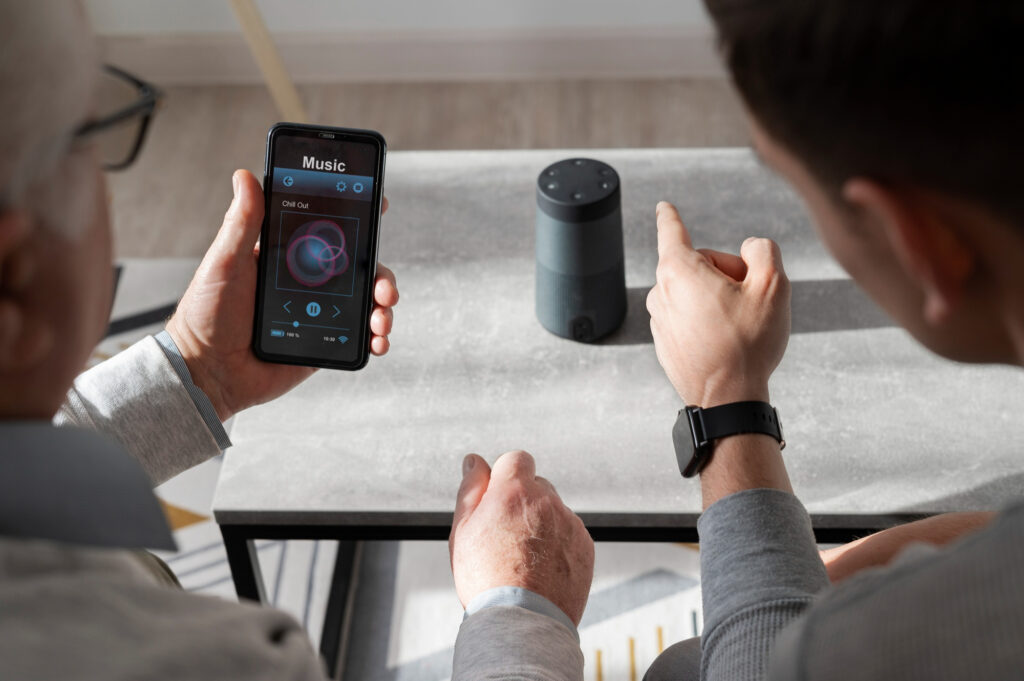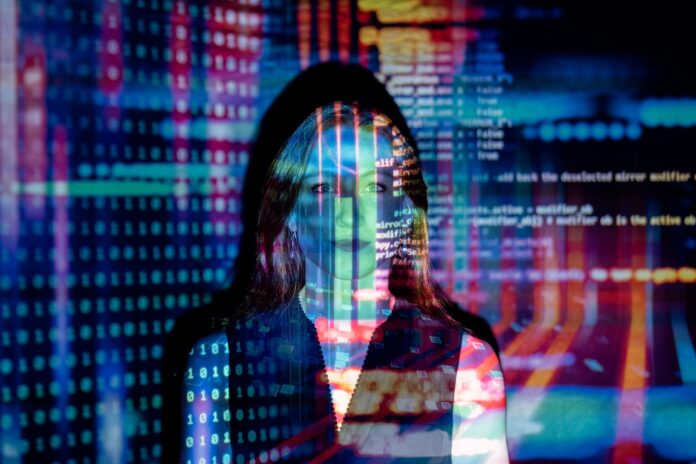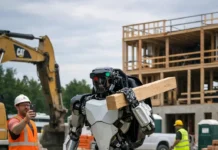Ever wondered about what is the future of AI? Will our mornings be greeted by robots? Can our daily tasks really be handled with a simple voice command? It may seem like something out of a science fiction novel, but it’s actually not too far from becoming reality.
The evolution of AI has been a captivating journey, progressing from basic machines to now possessing the capability to comprehend and analyze intricate information. As we venture into the future, the potential of AI appears limitless.
And that’s why many of us wonder what will the future of AI look like. It holds the promise not only of simplifying our lives but also of unveiling new revelations and offering resolutions to significant challenges.
What is AI?
Artificial intelligence, often referred to as AI, is a field of computer science dedicated to creating machines capable of performing tasks that typically require human intelligence. Unlike traditional computing systems that follow pre-determined instructions, AI systems can process information, learn from it, and make decisions based on the data they receive.
Essentially, AI involves developing algorithms and models that enable computers to perform tasks without explicit programming for each task.
AI technology has already made its way into our daily lives through virtual assistants like Siri and Alexa or recommendation engines on streaming platforms. It is rapidly transforming the way we interact with technology and the world around us.

The potential impact of AI extends far beyond convenience in our personal lives; it has the power to revolutionize sectors such as healthcare, finance, and transportation.
With its ability to analyze large amounts of data efficiently and make informed decisions, AI is undeniably one of the most exciting and influential technological advancements of our time. Its continued development holds vast possibilities for improving various aspects of our society.
Where Are We Now?
The world of AI has come a long way, and its presence is now more ubiquitous than ever. Today, most of us interact with AI, often without even realizing it.
Think about the last time you searched for something on the internet. The results that popped up were likely sorted and presented to you with the help of AI. Or when you scroll through your social media feed, and the content seems tailor-made for you? That’s AI at work, understanding your preferences and curating content accordingly.
Furthermore, industries across the board are harnessing the power of AI. Healthcare is deploying AI tools for early diagnosis, predicting patient care needs, and even assisting in surgeries. The finance sector uses AI for fraud detection, stock market predictions, and customer service. Retailers use it to forecast demand, customize shopping experiences, and manage supply chains efficiently.
The business landscape is experiencing a transformation, with AI systems enhancing productivity, decision-making, and customer experience.
On the streets, self-driving cars aren’t just a futuristic idea anymore. They’re starting to pop up! Many are still in the testing phase, but some of their cool features are already in the cars we see today.

And it’s not just cars. At home, many of us are chatting with Alexa, Google Assistant, or Siri. They help us with tasks like reminding us of appointments or even turning off our lights.
But, as cool as this all sounds, bringing AI into our everyday lives isn’t without its hiccups and worries. Questions about privacy, data security, and the ethical use of AI are being raised. Many are wondering about the job market and what changes AI might bring to the workforce.
What’s Next for AI?
The world of smart tech keeps growing, stretching limits and reshaping our idea of what can be done. As we’re at the edge of many new leaps, it’s cool to look at the different paths smart tech might wander down in the near future.
- Enhanced personalization: One of the most anticipated developments in AI is the increased personalization of user experiences. We can expect platforms and services to understand individual preferences even more deeply, adjusting content, recommendations, and interactions in real time to suit each user. This means your devices, apps, and even online shopping experiences might soon feel like they “know” you better than ever before.
- Healthcare revolution: The healthcare sector is poised for a significant AI transformation. Advanced algorithms will soon aid in early diagnosis, drug discovery, and personalized treatment plans. Wearable devices, infused with AI, could monitor our health 24/7, offering insights and early warnings about potential health issues.
- AI in creativity: While AI has largely been viewed as a tool for analytical tasks, the future will see it playing a role in creative processes. From music composition to visual arts and writing, AI will collaborate with humans to produce unique and innovative pieces, expanding the horizons of what’s possible in the artistic realm.
- Autonomous transportation: We’re all aware of self-driving cars, right? But think about this: what if that tech didn’t stop at our roads? Picture a world where boats, trains, and even planes are cruising around without a person at the helm. It’s like a little twist that could shake up the whole way we get from point A to B, making journeys safer and smoother. And the cool part? It might just unlock a whole new world of getting around for all of us.
- Ethical and moral AI: As AI’s influence grows, so do concerns about its ethical implications. The future will likely focus on creating AI systems that understand and adhere to ethical guidelines, ensuring that technology respects human rights, privacy, and moral values.
- Edge AI: Instead of relying on centralized servers, AI of the future will operate on the “edge”, meaning on local devices like smartphones, cars, or household appliances. This decentralized approach will enable faster responses, enhanced privacy, and reduced data transfer costs.
Looking ahead, it’s not merely about crafting more clever gizmos. It’s more about enhancing our daily existence, simplifying our actions, and tackling massive challenges that once seemed beyond reach. There’s a vast sea of possibilities awaiting! With each step, it’s evident that this tech wave is going to play a significant role in the journey we’re embarking on collectively.
Are there any Challenges in the Future of AI?
Absolutely, the journey into the realm of AI is not without its hurdles. As we integrate AI more deeply into our lives and industries, several challenges come to the fore.
One of the prime concerns is the ethical implications of AI. For instance, if an AI-driven car is faced with an unavoidable accident, how should it be programmed to act? Should it prioritize the safety of its passengers over a pedestrian? These are tough ethical puzzles with no clear solutions, and as machines start to make more choices on their own, these concerns get more and more pressing.
With AI’s ability to perform certain tasks efficiently, there’s a genuine concern about job losses in sectors that can be automated. The challenge lies not just in the potential unemployment but also in the reskilling and retraining of the workforce for newer roles in an AI-driven world.
AI systems learn from data. If this data contains biases, the AI will likely reproduce or even amplify those biases. This can lead to unfair or discriminatory outcomes, especially in sensitive areas like hiring, law enforcement, and lending.
As with any technology, there’s a risk of AI being used maliciously. From deepfakes that can spread misinformation to AI-driven cyberattacks that can exploit systems more rapidly than human hackers, the misuse of AI poses a considerable challenge.

As we come to rely more on AI systems, there’s a risk of becoming too dependent. If these systems were to fail or make errors, the consequences could be significant, especially in critical areas like healthcare or transportation.
So what do you think? What will happen to AI in the future?





I wish we discovered AI sooner. The new ChatGPT updates saved me so much time.
Comments are closed.